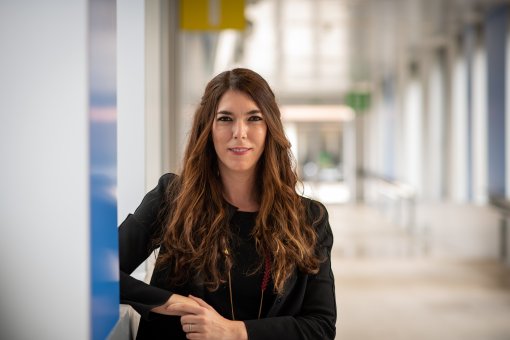Contact

This year IRB Barcelona researchers once again collaborate through four activities in the Science and Technology Fair that is being held this weekend, 15 and 16 June, in the Ciutadella Park in Barcelona.
Anna Merlos, associate researcher with the Colorectal Cancer Lab, will address “What are stem cells and what do their do in our bodies? What do these cells have to do with colon cancer?”. The talk will focus on the biology of intestinal stem cells and its relation with colon cancer cells. This talk will be given in the section "Conversations" from the Park, on Saturday 15 June at 14 h. in the Franklin zone.
On Sunday 16, at 13 h, in the same zone, Meritxell Teixidó, associate researcher with the Peptides and Proteins Laboratory, will explain “How do we get a medicine into the brain?”. The blood-brain barrier is a separation between blood vessels and the central nervous system. This barrier prevents many toxic substances from entering the brain and at the same time allows the transport of nutrients and oxygen. Without this barrier, many harmful substances would reach the brain and affect its activities, making life non-viable. How can we overcome the barrier to get drugs into the brain? Through peptide shuttles as a means of transport.
Workshops: “Flies with cancer?” and “Investigate with cells and genes!”, organized by the PCB and headed by researchers from IRB Barcelona
“Investigate with cells and genes!” is a scientific experiment workshop where the public will be able to participate in one of the research lines currently underway at IRB Barcelona. Laia Miret and Ignacio Castrillón working in the Heterogenic and polygenic diseases lab will show members of the public how research is performed with cell cultures and the studies being carried out on some compounds to develop possible medicines for the treatment of diabetes type II and obesity. The activity is aimed at children from 12 upwards and will take place on Saturday 15 June, from 17:45 h to 20:00 h, at the “Institut Verdaguer” (Room 5).
In the activity entitled “Flies with cancer?”, Òscar Martorell and Salvador Pérez from the Morphogenesis in Drosophila laboratory will explain how the fruit fly (Drosophila melanogaster) is used as a model to study what causes cancer and the similarities between fly tumours and human tumours. With the help of apparatus used in the labs, participants will count larvae that show distinct mutations, will observe fly brains and finally will analyse healthy cells and tumour cells. This activity is also aimed at children from 12 upwards and will be held on Sunday 16 June, from 12:15 h to 14:15 h, at the “Institut Verdaguer” (Room 7).
The "Science and Technology Fair" will host more than 200 free activities designed in a fun way to allow participants to experiment, explore and discover research and innovation of excellence being done in Catalonia and guided by the very scientists involved. The initiative is directed at all members of the general public and will involve scientists and investigators from more than 150 research centres, institutes, museums, businesses and universities.
For more information about the programme: http://festacienciaitecnologia.bcn.cat/
About IRB Barcelona
The Institute for Research in Biomedicine (IRB Barcelona) pursues a society free of disease. To this end, it conducts multidisciplinary research of excellence to cure cancer and other diseases linked to ageing. It establishes technology transfer agreements with the pharmaceutical industry and major hospitals to bring research results closer to society, and organises a range of science outreach activities to engage the public in an open dialogue. IRB Barcelona is an international centre that hosts 400 researchers and more than 30 nationalities. Recognised as a Severo Ochoa Centre of Excellence since 2011, IRB Barcelona is a CERCA centre and member of the Barcelona Institute of Science and Technology (BIST).



